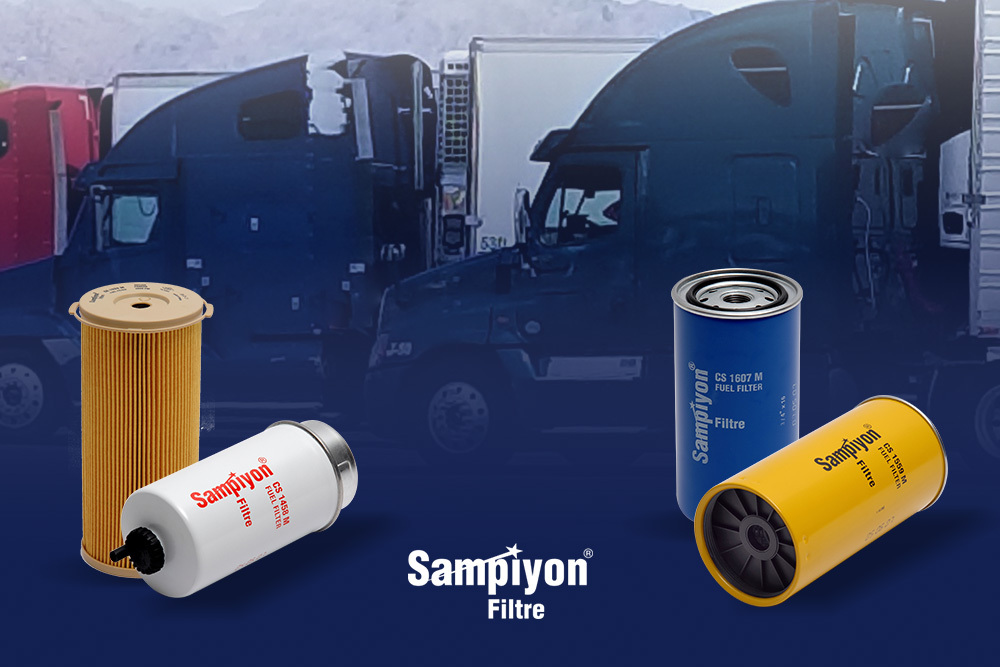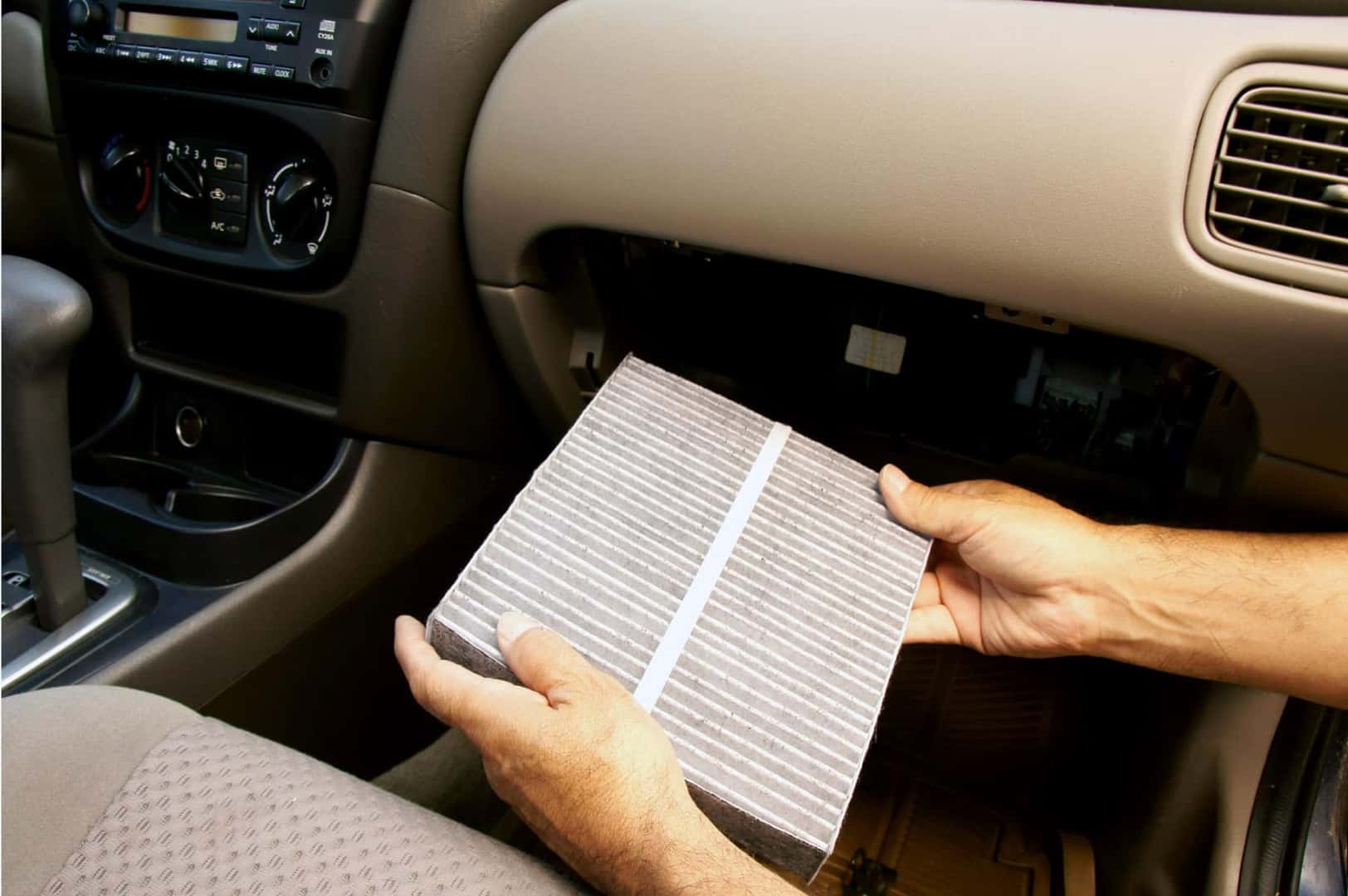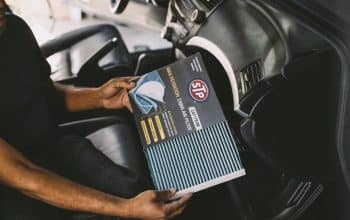Not changing your cabin air filter can lead to reduced air quality and impeded airflow in your vehicle. Over time, a clogged filter can strain the HVAC system, potentially causing more significant issues.
Ensuring your vehicle’s cabin air filter is regularly replaced is crucial for maintaining a clean and healthy environment inside your car. This seemingly small component plays a significant role in trapping dust, pollen, and other pollutants before they enter the interior of your vehicle.
Neglecting to change the filter can result in a buildup of contaminants, which not only affects the air quality but can also lead to unpleasant odors and allergic reactions for some passengers. Regular maintenance of the cabin air filter is an easy and cost-effective way to ensure the air you breathe while driving is as clean as possible, while also preserving the longevity and efficiency of your car’s heating and cooling systems.

Credit: www.sampiyonfilter.com.tr
Introduction To Cabin Air Filters
The air you breathe inside your car is clean because of cabin air filters. These filters catch dust, pollen, and other tiny particles. Without them, your car’s air would be dirty and unhealthy.
Purpose Of Cabin Air Filters
Cabin air filters serve a vital role:
- They clean the air entering your car through the heating, ventilation, and air conditioning (HVAC) system.
- Filters trap dust, pollen, and pollutants to keep the air inside your car fresh.
- They help protect the car’s HVAC system from debris, ensuring it works well.
Typical Replacement Intervals
Knowing when to replace your cabin air filter is important. Most car manuals suggest changing it every 12,000 to 15,000 miles. Yet, this can vary based on your driving environment:
| Driving Condition | Replacement Interval |
|---|---|
| City Driving | 10,000-12,000 miles |
| Rural Driving | 15,000-20,000 miles |
| Dusty Conditions | 5,000-10,000 miles |
Check your car’s manual or ask a mechanic for the best interval for your vehicle.
Air Quality Compromise
The cabin air filter plays a crucial role in maintaining the air quality inside your vehicle. Neglecting to replace this filter can lead to a host of issues, compromising the comfort and health of everyone inside the car.
Breathing Issues And Allergies
A dirty cabin air filter can significantly affect passengers. Here’s what may happen:
- Poor filtration of external pollutants
- Influx of allergens like pollen and dust
- Potential for breathing problems to develop or worsen
These issues are particularly harmful to individuals with asthma or other respiratory conditions.
Unpleasant Odors Inside The Vehicle
An unchanged filter becomes a breeding ground for bacteria and mold. This leads to:
- Stale and musty smells
- Accumulation of unwanted odors from outside
Regular filter changes keep your car smelling fresh and clean.
Impact On Heating And Cooling Systems
The cabin air filter plays a critical role in your car’s overall comfort. It filters out dust, pollen, and pollution from the air entering your vehicle. A dirty filter can negatively affect the performance of your heating and cooling systems.
Reduced Hvac Efficiency
A clogged cabin air filter forces your HVAC system to work harder. This can lead to poor airflow from the vents. You may notice weak air conditioning or heating performance. The system struggles to maintain the desired temperature.
Bold airflow and temperature control are essential for comfort. A clean filter ensures both.
Potential For Overworked Components
An overworked HVAC system can lead to premature wear. Key components like the blower motor may fail sooner. This can result in unexpected repairs and costs.
Regular filter changes protect these components. They also ensure a reliable HVAC system.
Safety Concerns While Driving
Neglecting to change your cabin air filter can lead to serious safety issues while driving. A clogged filter compromises the air quality inside your vehicle. This may result in health risks and driving hazards. Let’s explore how an unchanged cabin air filter affects safety.
Impaired Visibility From Foggy Windows
Foggy windows reduce visibility, a critical safety concern. A fresh cabin air filter helps prevent window fogging by regulating the moisture levels in your car. A dirty filter cannot properly manage the cabin humidity. This results in condensation on windows, which obstructs your view.
Distraction Due To Discomfort
Comfort is crucial for driver focus. An unchanged air filter leads to poor air quality. This may cause discomfort, allergies, and headaches. Such distractions take your attention away from the road. They increase the risk of accidents.
Economic Implications
Economic implications arise when neglecting the change of a cabin air filter. This simple maintenance task affects more than just air quality.
Increased Fuel Consumption
A clogged cabin air filter forces the HVAC system to work harder. This strain demands more power, leading to increased fuel usage. Over time, the extra gas adds up, hitting your wallet hard.
Costly Hvac Repairs And Maintenance
Dirty filters strain the car’s HVAC system. Key components wear out faster, resulting in expensive repairs. Regular filter changes prevent these costs and extend HVAC life.
| Service | Cost Without Regular Filter Change | Cost With Regular Filter Change |
|---|---|---|
| Fuel Over Time | High | Standard |
| HVAC Repairs | Increased | Minimal |
- Higher fuel bills due to inefficient performance
- Potential for costly HVAC system failures
- Long-term savings with regular filter changes
Long-term Vehicle Damage
Neglecting to change your cabin air filter can lead to Long-Term Vehicle Damage. This damage affects both your car’s interior and its electronic components. Let’s explore how.
Accelerated Wear Of Vehicle Interior
Over time, a dirty cabin air filter will fail to prevent dust and pollutants from entering your vehicle. This can result in:
- Faded upholstery due to dust exposure.
- Increased allergens making the air quality poor.
- Wear and tear on carpet and seats.
Clean air is vital for maintaining the interior condition of your vehicle. Without it, your car’s interior ages faster.
Potential Damage To Electronic Components
A clogged cabin air filter can also harm your car’s electronics. Here’s why:
- Dust accumulates on electronic components, causing overheating.
- Overheating can lead to short-circuits in the dashboard or audio system.
- Essential sensors might fail, affecting vehicle performance.
Regular filter changes protect these components from dust-related damage. This keeps your vehicle running smoothly.
Remember, changing your cabin air filter is a simple step. Yet, it significantly impacts your vehicle’s longevity and performance. Don’t overlook this essential maintenance task.
Health Risks Beyond The Cabin
Ignoring a cabin air filter change can lead to more than just an unpleasant drive. It may affect your health and the environment. Let’s explore some lesser-known risks associated with not replacing this essential component of your car.
Microbial Growth And Its Effects
A dirty cabin air filter creates a perfect breeding ground for microbes. These tiny organisms can spread throughout your car and beyond. Here are the key impacts:
- Allergic reactions can trigger from mold and bacteria.
- Respiratory issues may worsen, especially in those with asthma.
- Potential for foul odors to permeate the vehicle interior.
Beyond personal health, these microbes can also exit your car. They might contribute to wider environmental concerns.
Contribution To Overall Environmental Pollution
A clogged cabin air filter affects your car’s efficiency. This inefficiency can lead to increased emissions. Here’s what happens:
| Car Condition | Environmental Impact |
|---|---|
| Decreased Airflow | Forces the HVAC system to work harder, using more fuel. |
| Strained Engine | Leads to higher emissions, contributing to air pollution. |
By not changing your cabin air filter, you not only risk your health but also add to the larger issue of environmental pollution.

Credit: www.linkedin.com
Preventive Measures And Best Practices
Preventive Measures and Best Practices are key to ensuring your car’s cabin air filter works well. A dirty or clogged filter can cause problems. These include poor air quality and decreased HVAC system efficiency. This section details steps to avoid these issues.
Regular Maintenance And Inspection
Keep your cabin air filter in good shape through regular checks. Follow these guidelines:
- Check the filter every 15,000 to 30,000 miles.
- Inspect more often in dusty areas.
- Look for signs of wear and damage.
- Replace the filter as recommended by your vehicle’s manual.
Choosing Quality Replacement Filters
When replacing the cabin air filter, consider these points:
- Opt for high-quality filters for better performance.
- Ensure the filter fits your specific car model.
- Avoid low-cost, low-quality options.
By following these preventive measures, you can breathe clean air and keep your car’s interior comfortable.
Signs It’s Time To Change Your Cabin Air Filter
Ever wonder about the air you breathe inside your car? The cabin air filter plays a crucial role. Ignoring it can lead to unpleasant consequences. Here’s how to tell when it’s time for a change.
Visual And Olfactory Cues
Dust, debris, and a musty smell in your car are tell-tale signs. A quick inspection can reveal a dirty, clogged filter. Look for these visual and olfactory cues:
- Excessive dust on your dashboard
- Dirty filter appearance when checked
- Foul odors when the AC or heat is on
Performance Indicators
Your car will show clear signs when the filter needs attention. Note these performance indicators:
| Indicator | Sign |
|---|---|
| Weak airflow | AC or heater takes longer to affect cabin temperature |
| Unusual noises | Whistling sounds or excessive fan noise |
| Window fogging | Excessive condensation, hindering visibility |

Credit: www.vikingmotors.ca
Frequently Asked Questions
What Happens If You Don’t Change Your Cabin Filter?
Not changing your cabin filter can lead to poor air quality inside your vehicle. It may also cause the HVAC system to work harder, reducing its lifespan. This neglect can result in unpleasant odors and potentially harm passengers with respiratory issues by circulating dust and allergens.
How Long Can You Go Without Changing Cabin Air Filter?
Typically, a cabin air filter should be changed every 15,000 to 25,000 miles, or at least once a year. Check your vehicle’s manual for specific recommendations.
Can I Drive With A Bad Cabin Air Filter?
Yes, you can drive with a bad cabin air filter, but it may reduce air quality and airflow inside your vehicle, potentially causing discomfort or health issues for passengers.
What Are The Symptoms Of A Bad Cabin Air Filter?
Symptoms of a bad cabin air filter include reduced airflow through HVAC system, unpleasant odors inside the car, and increased dust or allergens.
Conclusion
Neglecting to replace your cabin air filter can lead to a series of unpleasant outcomes. From reduced air quality inside your vehicle, affecting both comfort and health, to potential HVAC system strain, the consequences are too significant to ignore. Regular maintenance ensures a cleaner, healthier, and more enjoyable driving experience.
Remember, a simple change can make a big difference.
